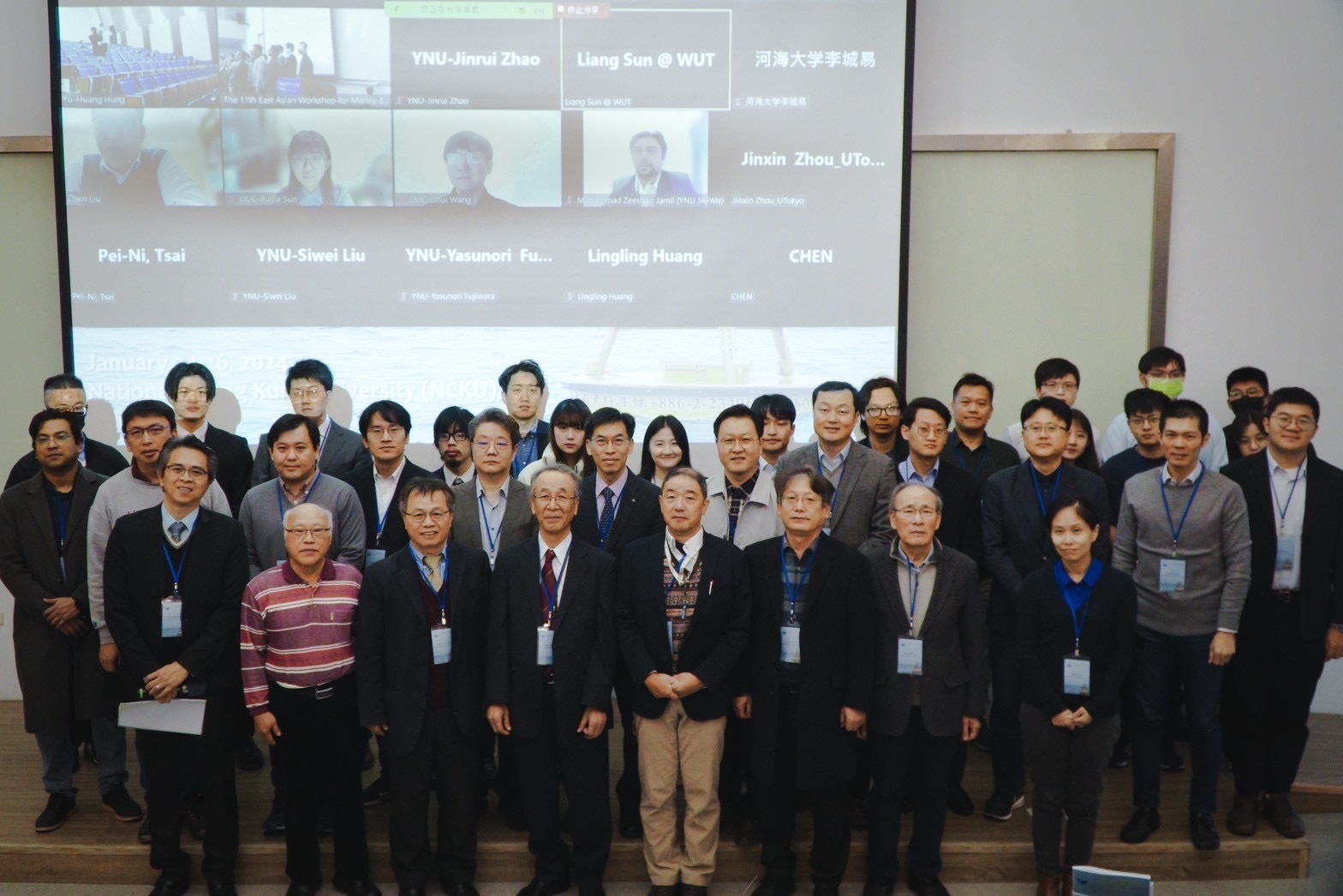SDG7
NCKU's ESG Industry-Academia Tech Matching Meeting highlights expertise in carbon reduction and circular economy technologies.
National Cheng Kung University (NCKU) hosted an Industry-Academia Technology Matching Meeting and Exhibition on August 24, 2023, inviting technical teams from multiple schools affiliated with NCKU GLORIA to participate. A total of 20 technology projects were showcased, and a matchmaking session was held onsite, providing a platform for the matching of over a hundred technologies. The event highlighted NCKU's strong capacity in technology, demonstrating its leadership in connecting various resources.
Co-organized by NCKU and the Photonics Industry & Technology Development Association (PIDA), the event focused on ESG (Environmental, Social, and Governance), which has become increasingly important in industry, economic, and social development. Recognizing this trend, NCKU, as the leader of the NCKU GLORIA, presented a range of forward-looking technologies, including waste circular economy, carbon capture, and waste heat recovery.
One notable project, led by Professor Jong-Shin Huang (Scopus) from the Department of Civil Engineering, utilized various waste materials such as waste glass, blast furnace slag, converter slag, reducing slag, oxidation slag, and fly ash as alkali-activated materials. Through a low-energy, low-pollution process and mix design, these materials were used to produce paint with high hygroscopicity and color-changing properties, suitable for waterproofing concrete structures. Another project, led by Professor Chuan-Pu Liu (Scopus) from the Department of Materials Science and Engineering, developed nano-silica powder, which, upon contact with silicon and most aqueous solutions such as seawater, urine, or beverages, undergoes an oxidation reaction to form silica, producing hydrogen gas with a purity of over 99.9%. This hydrogen gas is then used to power small proton exchange membrane fuel cells, addressing the current drawbacks of most portable power generation devices, which tend to be bulky.
Given the heightened focus on carbon reduction, many resources have been invested in researching carbon dioxide reduction to combat climate change. Professor Chun-Yen Chen's (Scopus) research team at the Center of Bioscience and Biotechnology at NCKU has developed multiple carbon dioxide capture technologies, including using microalgae negative carbon technology to effectively capture carbon dioxide from the atmosphere, directly reducing its concentration.
Professor Wei-Hsin Chen's (Scopus) team from NCKU's Department of Aerospace Engineering, together with Assistant Professor Guan-Ting Lee from the Department of Chemical Engineering at Tung-Hai University, along with companies like C-Cube and LeTu, collaborated on the development of circular economy carbon storage materials from agricultural waste. This innovative approach not only helps reduce carbon dioxide emissions but also recycles and stores atmospheric CO2 into recyclable thermoplastic plastics or building materials, replacing the use of carbon black derived from petrochemicals. This effectively reduces agricultural waste production and increases the reuse rate in the circular economy. Additionally, Assistant Professor Teng-Hao Chen (Scopus) from NCKU's Department of Pharmacy developed a pressure swing adsorption gas separation system, an efficient carbon capture system beneficial for industrial waste gas treatment and natural gas purification.
Furthermore, in addition to actively reducing carbon emissions, using clean energy sources has also become a trend. Professor Rui-Tang Chen from National University of Tainan developed a composite optical module, which not only strengthens the mechanical integrity of its solar cell device to prevent damage from strong winds but also allows for placement on agricultural land to utilize residual light for photosynthesis in crops. This addresses the issue of the high shading rate of existing solar panels, which leads to poor efficiency in agricultural and fishery coexistence. This technology has garnered significant attention as a promising newcomer.
Professor Der-Hwa Fang from National Kaohsiung University of Science and Technology developed a modular underwater device that can adjust the number or arrangement of light source modules according to the desired fish species or requirements. It can also change different wavelengths, illuminance, or light source characteristics, providing a modular design that can quickly adapt to underwater lighting needs. This design not only facilitates maintenance and replacement but also reduces manufacturing costs and space requirements.
The NCKU GLORIA consists of 11 universities with diverse expertise, including NCKU, National Formosa University, National Kaohsiung University of Science and Technology, Providence University, Southern Taiwan University of Science and Technology, National Pingtung University, Kun Shan University, Far East University, TungHai University, Chang Jung Christian University, and Tainan University of Nursing and Health Sciences. The platform has built a database of over 700 research and technology projects, integrating university research, patents, production lines, and research centers, serving as a bridge for university-enterprise matchmaking and providing guidance to campus startup teams, thus significantly promoting the industrialization of research outcomes.
Co-organized by NCKU and the Photonics Industry & Technology Development Association (PIDA), the event focused on ESG (Environmental, Social, and Governance), which has become increasingly important in industry, economic, and social development. Recognizing this trend, NCKU, as the leader of the NCKU GLORIA, presented a range of forward-looking technologies, including waste circular economy, carbon capture, and waste heat recovery.
One notable project, led by Professor Jong-Shin Huang (Scopus) from the Department of Civil Engineering, utilized various waste materials such as waste glass, blast furnace slag, converter slag, reducing slag, oxidation slag, and fly ash as alkali-activated materials. Through a low-energy, low-pollution process and mix design, these materials were used to produce paint with high hygroscopicity and color-changing properties, suitable for waterproofing concrete structures. Another project, led by Professor Chuan-Pu Liu (Scopus) from the Department of Materials Science and Engineering, developed nano-silica powder, which, upon contact with silicon and most aqueous solutions such as seawater, urine, or beverages, undergoes an oxidation reaction to form silica, producing hydrogen gas with a purity of over 99.9%. This hydrogen gas is then used to power small proton exchange membrane fuel cells, addressing the current drawbacks of most portable power generation devices, which tend to be bulky.
Given the heightened focus on carbon reduction, many resources have been invested in researching carbon dioxide reduction to combat climate change. Professor Chun-Yen Chen's (Scopus) research team at the Center of Bioscience and Biotechnology at NCKU has developed multiple carbon dioxide capture technologies, including using microalgae negative carbon technology to effectively capture carbon dioxide from the atmosphere, directly reducing its concentration.
Professor Wei-Hsin Chen's (Scopus) team from NCKU's Department of Aerospace Engineering, together with Assistant Professor Guan-Ting Lee from the Department of Chemical Engineering at Tung-Hai University, along with companies like C-Cube and LeTu, collaborated on the development of circular economy carbon storage materials from agricultural waste. This innovative approach not only helps reduce carbon dioxide emissions but also recycles and stores atmospheric CO2 into recyclable thermoplastic plastics or building materials, replacing the use of carbon black derived from petrochemicals. This effectively reduces agricultural waste production and increases the reuse rate in the circular economy. Additionally, Assistant Professor Teng-Hao Chen (Scopus) from NCKU's Department of Pharmacy developed a pressure swing adsorption gas separation system, an efficient carbon capture system beneficial for industrial waste gas treatment and natural gas purification.
Furthermore, in addition to actively reducing carbon emissions, using clean energy sources has also become a trend. Professor Rui-Tang Chen from National University of Tainan developed a composite optical module, which not only strengthens the mechanical integrity of its solar cell device to prevent damage from strong winds but also allows for placement on agricultural land to utilize residual light for photosynthesis in crops. This addresses the issue of the high shading rate of existing solar panels, which leads to poor efficiency in agricultural and fishery coexistence. This technology has garnered significant attention as a promising newcomer.
Professor Der-Hwa Fang from National Kaohsiung University of Science and Technology developed a modular underwater device that can adjust the number or arrangement of light source modules according to the desired fish species or requirements. It can also change different wavelengths, illuminance, or light source characteristics, providing a modular design that can quickly adapt to underwater lighting needs. This design not only facilitates maintenance and replacement but also reduces manufacturing costs and space requirements.
The NCKU GLORIA consists of 11 universities with diverse expertise, including NCKU, National Formosa University, National Kaohsiung University of Science and Technology, Providence University, Southern Taiwan University of Science and Technology, National Pingtung University, Kun Shan University, Far East University, TungHai University, Chang Jung Christian University, and Tainan University of Nursing and Health Sciences. The platform has built a database of over 700 research and technology projects, integrating university research, patents, production lines, and research centers, serving as a bridge for university-enterprise matchmaking and providing guidance to campus startup teams, thus significantly promoting the industrialization of research outcomes.
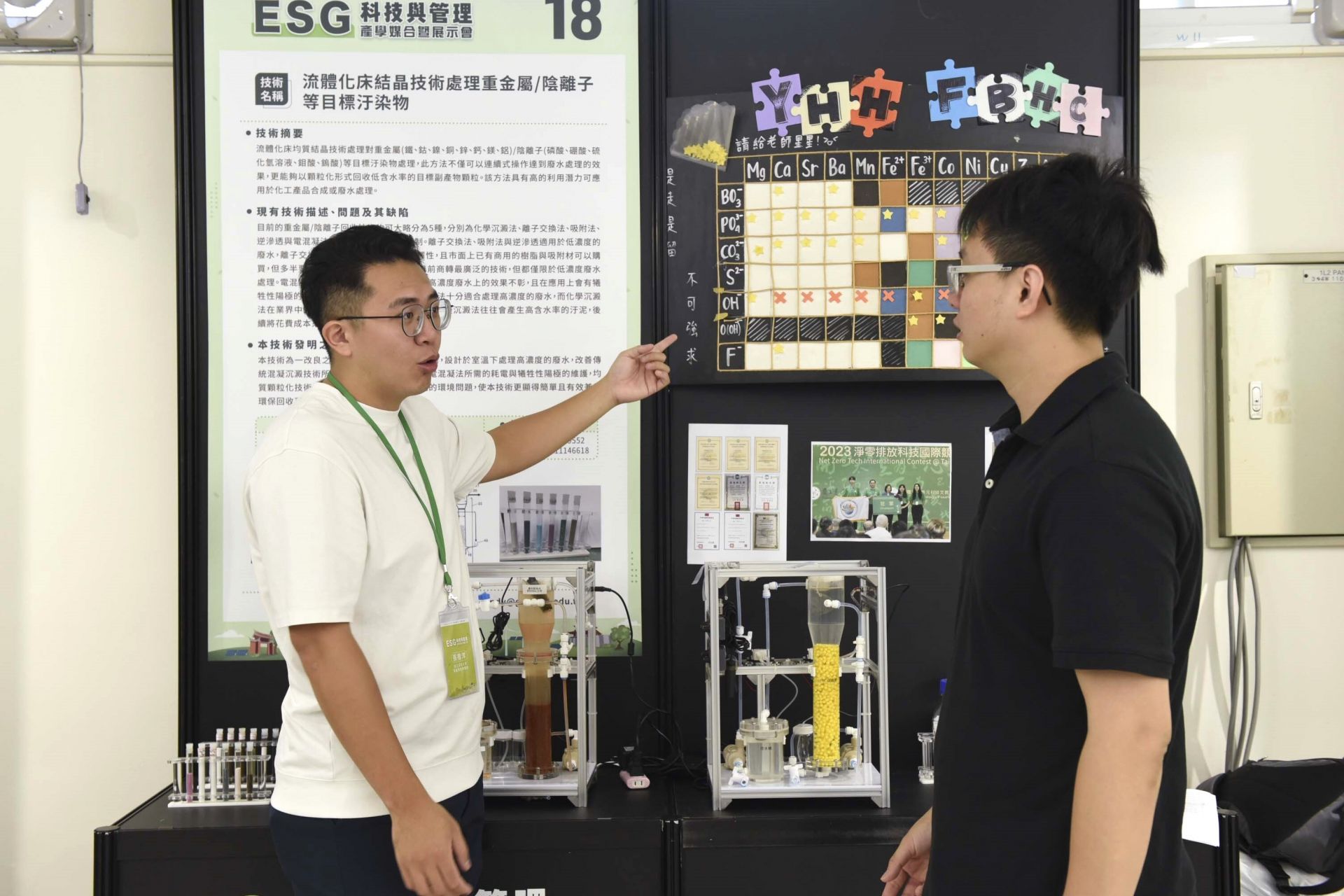
NCKU hosts an ESG Industry-University Collaboration and Exhibition, inviting technical teams from multiple schools within the GLORIA NCKU.
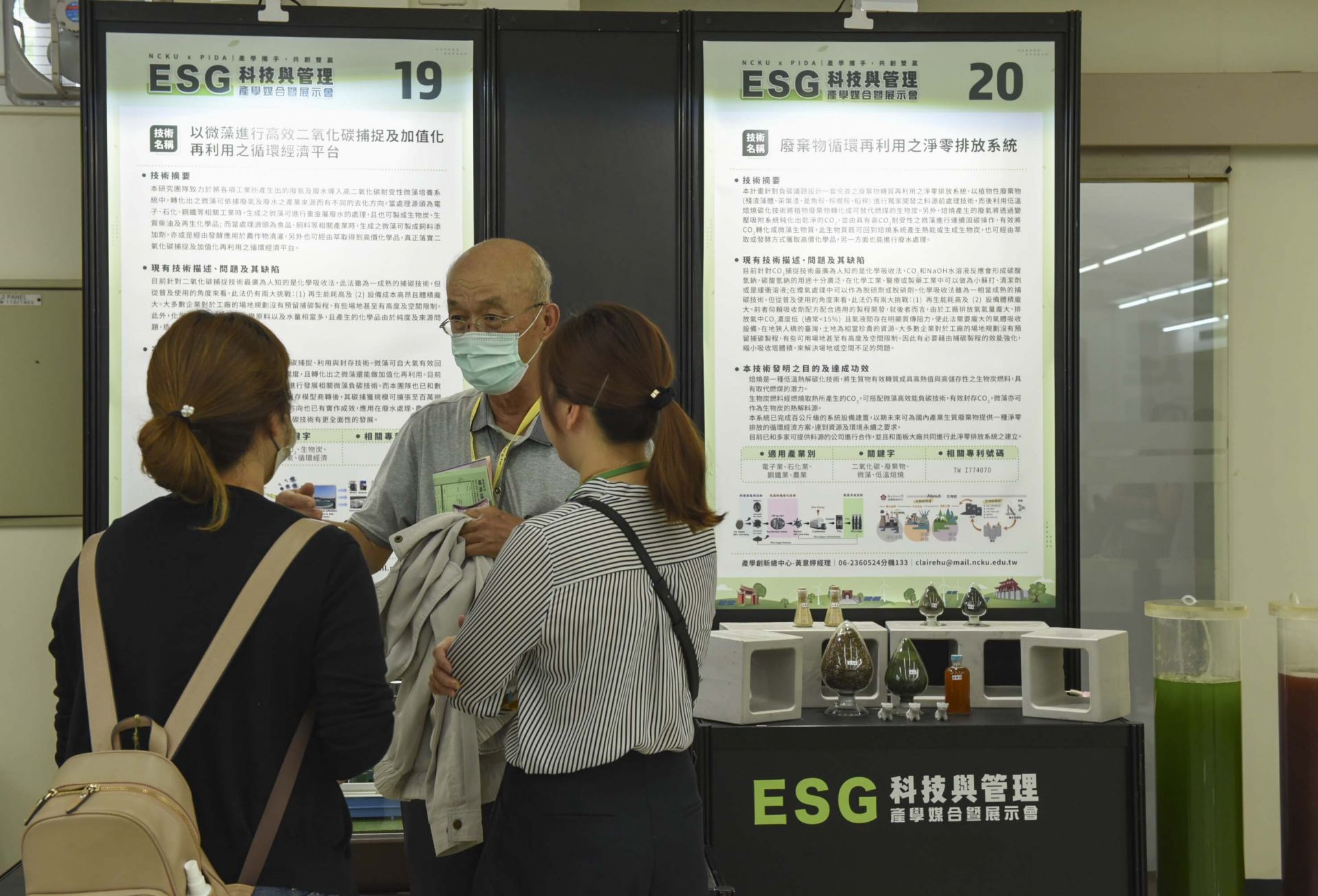
The ESG Industry-Academia Matching and Exhibition will showcase microalgae carbon-negative technology.
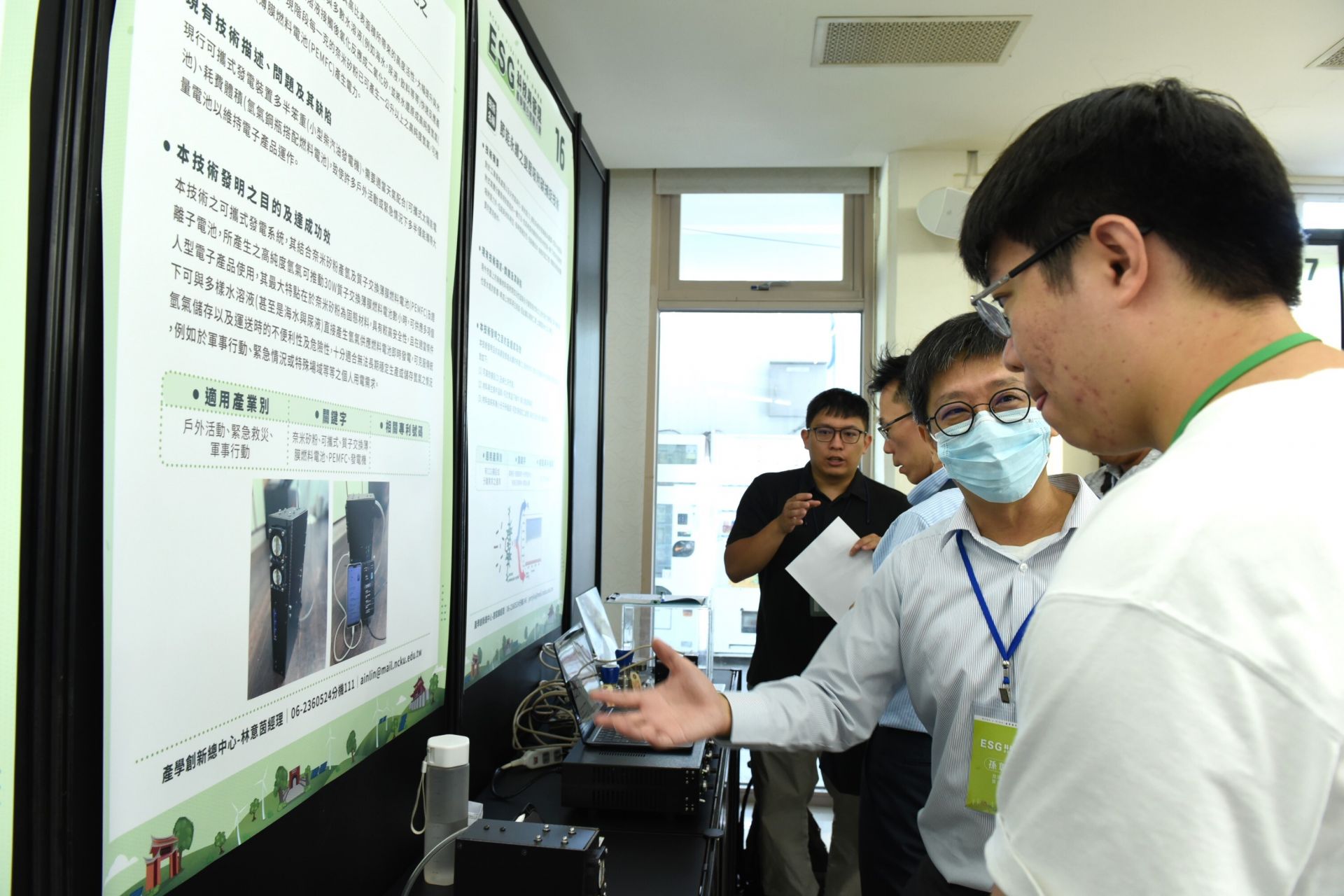
The ESG Industry-Academia Matching and Exhibition will showcase various research and development technologies.
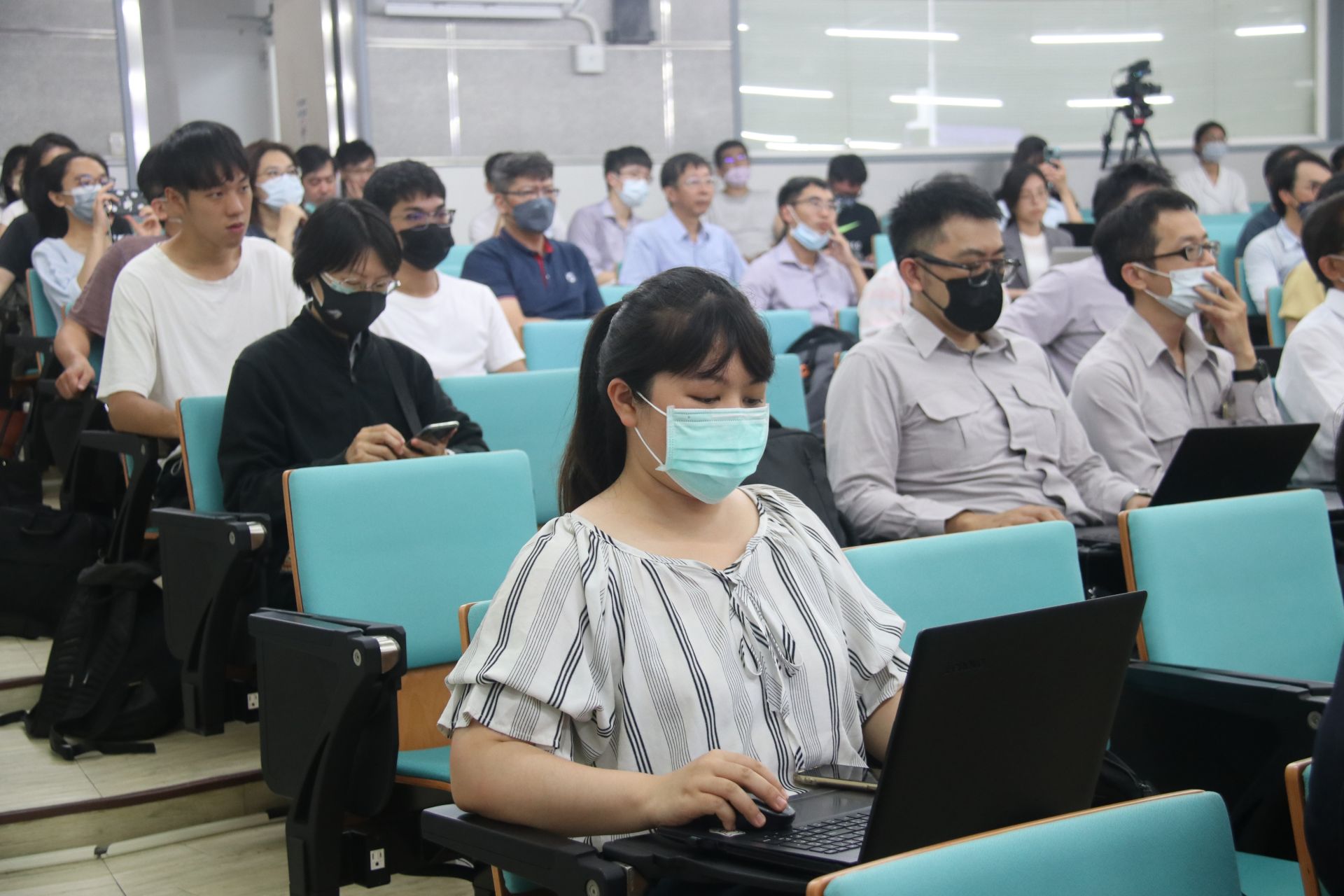
SDG7Transitioning High Carbon Emission Industries into Green Solutions: NCKU's Chemical Engineering Dept. towards the Net-Zero Era
View more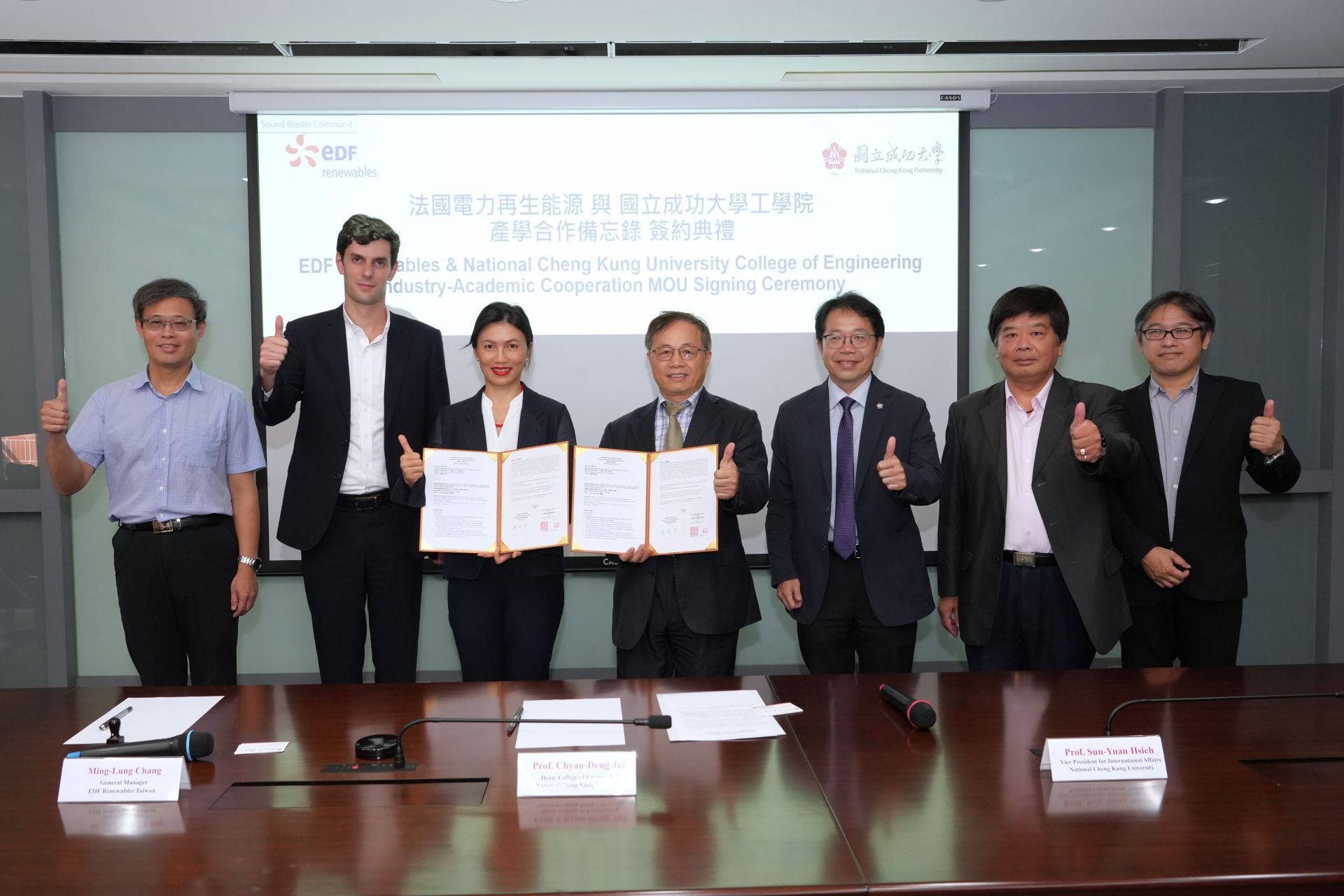
SDG7NCKU and EDF Renewables Sign MOU to Boost Industry-Academia Collaboration and Advance Floating Wind Power
View more